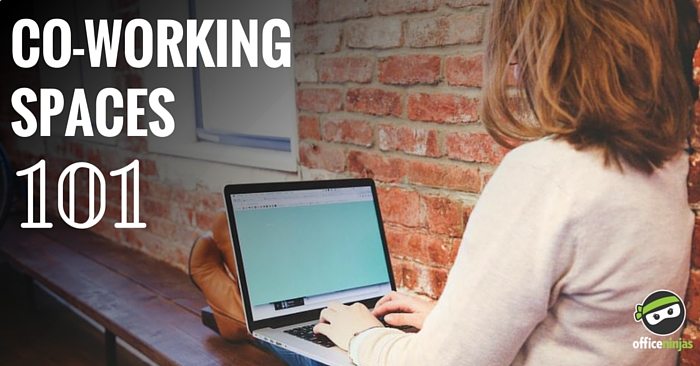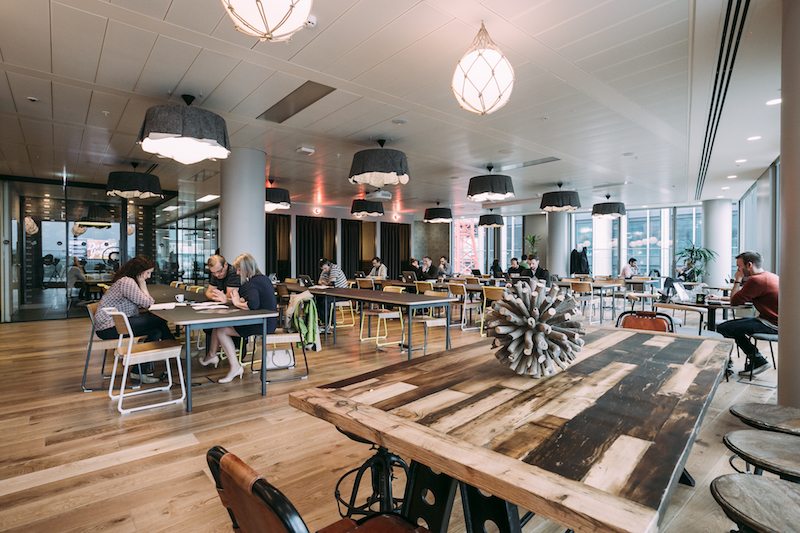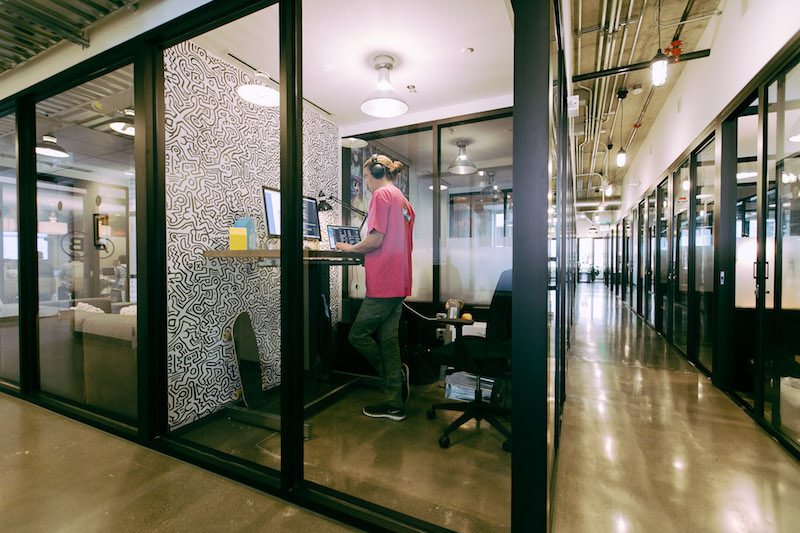Should Your Team Move to a Co-Working Space? Here’s the Good and The Bad

Your company needs a physical space, but the thought of searching for and leasing office space is intimidating (not to mention out of your budget right now). Whether you’re part of a distributed team or small tight knit company, co-working spaces might be the answer. Skeptical? WeWork, one of the biggest office-rental companies and sixth most valuable private company in the world, just received another roaring valuation from investors—their members must be onto something!
Freelancers, startups and solopreneurs may already be familiar with the concept of co-working, with 2016 slated to see over 10,000 spaces open up worldwide. The concept is simple—open office spaces that allow people to share furniture, a roof, and of course, Wi-Fi.
A New Way To Start Up

This workplace trend isn’t slowing down and the work style has been taken up widely within the entrepreneurial ecosystem. Many early-stage companies or distributed teams get access to amenities they wouldn’t otherwise be able to afford, especially in larger metropolitan areas like New York, Los Angeles, or Chicago.
“We were previously on one floor in an open plan office in the Flatiron area of NYC. Our lease was about to expire so we needed to find a new location. But more importantly, most spaces—especially in NYC—require a minimum lease term of three years and it is quite costly,” said Bobbi-Anne L., an Executive Assistant in Brooklyn. Her team moved to a Brooklyn WeWork location and was able to do so quickly, saving the typical strain and stress of looking for another leased space.
Perks of Shared Spaces

Besides the obvious benefit of saving cash, co-working offers a slew of other perks. For starters, many swear by the hive-like atmosphere—when you’re surrounded by like-minded individuals, fellow entrepreneurial teams and one-man (or woman) bands, camaraderie, and collaboration are bound to happen.
More positives about co-working include:
- Plenty of meeting space for group sessions or client appointments, usually equipped with the latest AV equipment
- Printing, copying, and mailing services within reach
- Access to a communal kitchen, often with free coffee, tea, and water—some even offer free beer and wine near closing time (bringing happy hour to you!)
- A friendly face at reception who greets you (and your guests), and handles mailroom duties, cleaning, and supplies (most but not all spaces offer this)
- More fun time—spaces regularly offer networking opportunities like happy hours, lunches, speaker sessions, and even product testing opportunities from other businesses
- Casual dress code
- Depending on the space and your membership, access to other co-working locations around the world
- Accessibility 24/7 (most but not all locations)
Challenges of Co-Working

You’re probably thinking there has to be at least one downside to co-working right? There is: a communal environment can be challenging when the chatter is more than you can tolerate.
Bobbi says, “Although every office is separated by glass, they are certainly not soundproof. If you don’t mind hearing chitter chatter then it may not be an issue.”
And while the potential for partnerships with other budding companies is a huge perk, you don’t get to choose your neighbors. If you’re rubbing elbows with teams who don’t share the same company culture, negative vibes can easily kill the motivation.
Other pitfalls include:
- Weak Wi-Fi that’s not in your control—everyone experiences downtime once in awhile, but if your name isn’t on the lease, then sometimes it happens more than you’d like
- Threat of theft—if you’re handling highly sensitive data for clients, privacy and security from your neighbors isn’t guaranteed
Work Nice with Others

With predictions that 50% of the labor force will be freelancers by the year 2020, it’s no surprise that co-working is a trend that’s here to stay. While it requires a fundamental shift in the way you and your team normally work, the perks certainly outweigh the pitfalls: people and businesses are thriving in these environments.
While it may be nice to have an office to call your own, one of the biggest co-working draws for businesses is that it’s work ready, when you need it. The headache of negotiating leases, enduring building delays, designing the layout and purchasing furniture and equipment are all avoided. Not to mention the scalability factor—if your company plans to scale down or up in the near future, the space can easily adapt, with minimal hassle.
It’s your turn to share, Ninjas! Have you or your business experienced co-working spaces? What were the perks and what were the pitfalls? Share in the comments below!
This is a great read. In deciding to work in a coworking office space, you should take into consideration the type of personality you have. Some people like introverts are not a fan of an open space work setting because they know that any time, they’re somehow oblige to speak or interact with other people, which is one of their biggest fears. Coworking office space is very ideal for their exact opposites, the extroverts. They don’t have problem with interacting with people and they enjoy working in an open space setting. Personality should be a factor to consider because, it affects the work productivity depending on the work environment.
As a virtual assistant working in the Atlanta, Georgia area, I use a local co-working space with 4 locations around the metro area. It’s a great place to meet with my clients when I need to and when I start to feel a bit alone, it’s a place I can go to work among people, even if I’m not working with people. The best thing is that I can use any of the locations with my membership and even have a healthy number of hours of meeting room space included in my membership if I need to meet privately with a client. Definitely worth the monthly membership fee!
Jenny that sounds like a perfect setup for a remote worker! Thanks for sharing :)